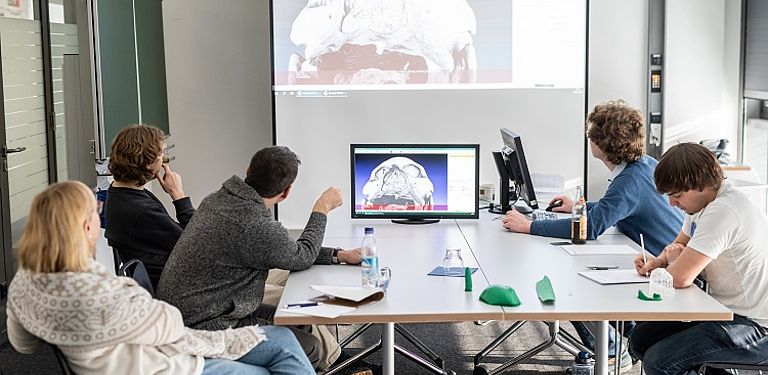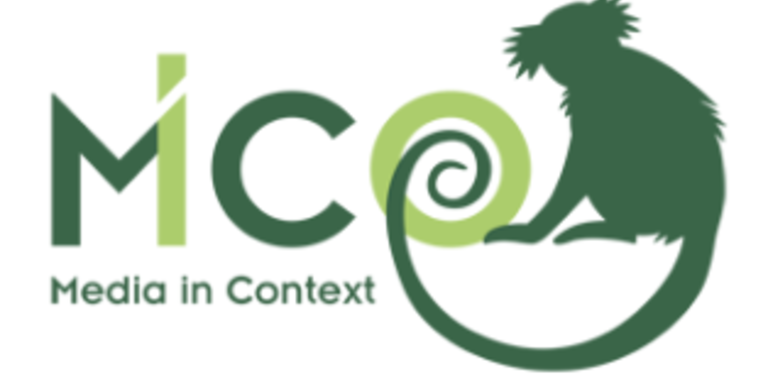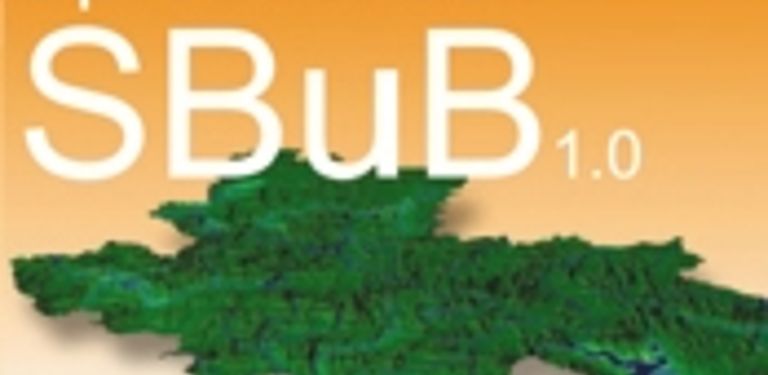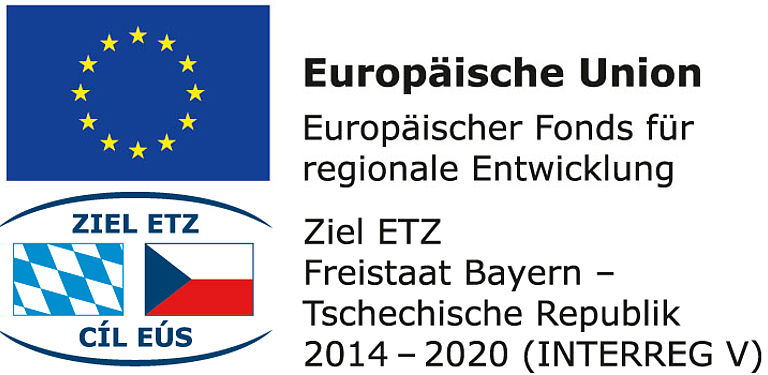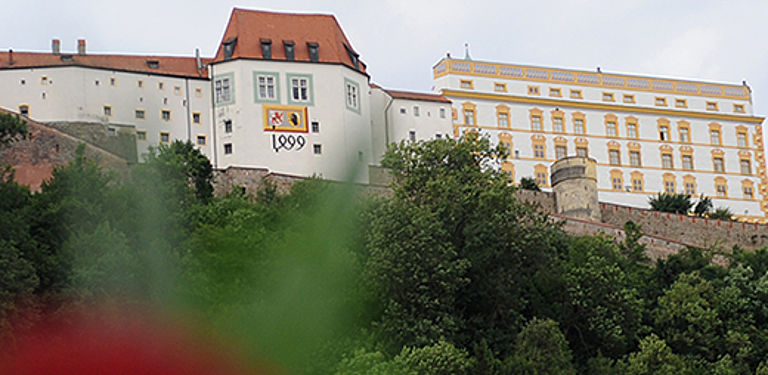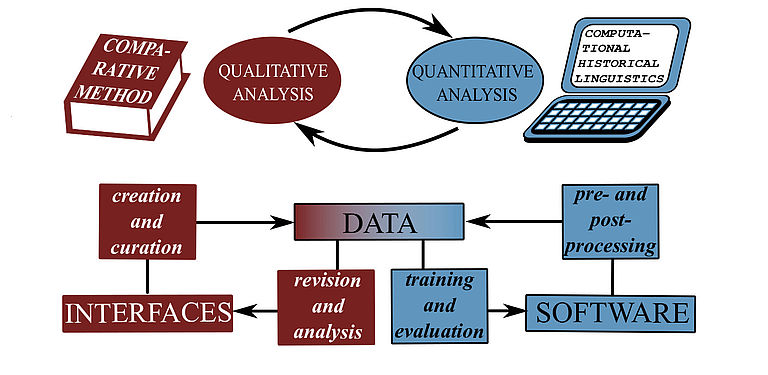Since 2011, the University of Passau has consistently been working across the faculties and disciplines to scrutinise the impact of digitalisation on society. The follow-on programme Technik Plus and the second phase of the successful DFG Graduate College Privacy have lent a lasting impetus to interdisciplinary collaboration between the faculties. One of the consequences has been the establishment of the Passau Centre for eHumanities using funds from the Federal Ministry of Education and Research (BMBF).
The eHumanities (enhanced/enabled humanities) is a research field that stands for a new level of interdisciplinary research at the interface shared by the humanities and social sciences as well as computer science. At the University of Passau, this discipline benefits not only from its proximity on the campus to a highly regarded Computer Science faculty that conducts both fundamental and applied research but also from its incorporation in the Technik Plus chairs of related subjects, including Data Science.
The Laboratory for Cultural Heritage Digitisation of the Chair of Digital Humanities supports eHumanities¬ activities in research and teaching and serves as a platform for scientific exchange. The Laboratory offers solutions for the experimental digitisation of texts and cultural artefacts, text recognition, text encoding, for the analysis and visualisation of semistructured and structured data as well as for web publishing.
Digital humanities would not be possible without specialist disciplines, such as historical research. You could say that interdisciplinary networking is the foundation of what we do.
Professor Malte Rehbein, Digital Humanities
Projects in the field of eHumanities
At the BMBF-funded Centre for eHumanities (PACE), researchers from all four faculties investigate how texts, image and audio interact in order to attribute meanings to objects within the context of digital and digitalised media. In other words, they are adding image, video and audio to the methodical repertoire. This allows cultural studies to make a quantitative assessment of art, photography and film. PACE creates the structural conditions needed for such research.
Subprojects of the Passau Centre for eHumanities
Participating researchers
Professor Oliver Decker
What cultural patterns do people use online to present themselves?
What cultural patterns do people use online to present themselves?
Professor Michael Granitzer
How can contexts of meaning be identified in a deluge of digital media?
How can contexts of meaning be identified in a deluge of digital media?
Professor Michael Granitzer holds the Chair of Data Science. His research focuses on the use of machine-based learning methods and intelligent human-machine interfaces.
Professor Siegfried Handschuh
How can methods used in the humanities be translated into algorithms?
How can methods used in the humanities be translated into algorithms?
Professor Rüdiger Harnisch
Which spaces do we use to communicate online and offline?
Which spaces do we use to communicate online and offline?

Professor Dirk Heckmann
Which data merits protection and why?
Which data merits protection and why?
Professor Dirk Heckmann holds the Chair of Law and Security of Digitization at the Technical University of Munich and heads the Research Centre for IT Law and Network Policy at the University of Passau. He is also a member of the federal government's Data Ethics Commission and serves, among other functions, as a constitutional judge in the Bavarian Constitutional Court. From 1998 to 2019 he held the Chair of Public Law, Security Law and Internet Law at the University of Passau.
Professor Horst-Alfred Heinrich
How do collective interpretations of cultural events emerge?
How do collective interpretations of cultural events emerge?
Professor Harald Kosch
How can intelligent systems source information from across various media?
How can intelligent systems source information from across various media?
Professor Harald Kosch has held the Chair of Distributed Information Systems at the Faculty of Computer Science and Mathematics since 2006. He is the German director of DFH/UFA Doctoral College, which brings together INSA de Lyon and the University of Passau. The main purpose of this exchange is to facilitate cooperation projects in intelligent digital systems.
Professor Johann-Mattis List
How to compare the over 6 000 languages spoken around the world, and how do computer-based methods help?
How to compare the over 6 000 languages spoken around the world, and how do computer-based methods help?
Comparative Linguist Johann-Mattis List has held the Chair for Multilingual Computational Linguistics at the University of Passau since January 2023 and heads the ERC-funded research group "ProduSemy". Before that, he served as stand-in professor at Bielefeld University and as senior researcher at the Max Planck Institute for Evolutionary Anthropology in Leipzig and the Max Planck Institute for the Science of Human History in Jena where he headed another ERC-funded research group on computer-assisted language comparison. Professor List earned his doctorate at the Heinrich Heine University in Düsseldorf and wrote his habilitation at the Friedrich Schiller University in Jena.

Professor Malte Rehbein
How can historical sources be digitalised and assessed with the assistance of computers?
How can historical sources be digitalised and assessed with the assistance of computers?
Professor Malte Rehbein has held the Chair of Digital Humanities at the University of Passau since 2013. He is a member of both the board of Digital Humanities in German Speaking Countries and the Scientific Advisory Board of Deutsches Museum.
Professor Ursula Reutner
Where will digitalisation take us: towards a unified culture or ever greater diversity?
Where will digitalisation take us: towards a unified culture or ever greater diversity?
Professor Ursula Reutner has held the Chair of Romance Languages and Cultures of the University of Passau since 2009; since 2014 she has held the post of Vice President for International Relations.
Professor Tomas Sauer
How can strategies of image processing and deep learning be combined?
How can strategies of image processing and deep learning be combined?
Professor Daniela Wawra
How do culture and language shape analogue and digital interactions?
How do culture and language shape analogue and digital interactions?
Professor Daniela Wawra has held the Chair of English Language and Culture of the Faculty of Arts and Humanities since 2010. From 2018 to 2020 she was Vice President for Study, Teaching and Internationalisation at the University of Passau.







